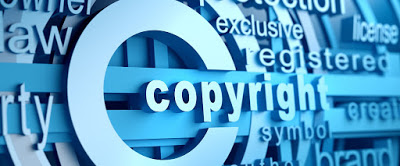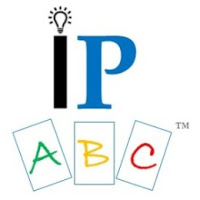
Question
are Publishable, a book publisher in Nigeria. We figuratively have a loaded double-barreled
gun pointing at us. Last week, we received a demand letter from BookSilo, a
publishing house. BookSilo alleges that our business directory, Publishable
Business Directory, infringes on its copyright because we allegedly copied the
contents of their directory, ‘The BookSilo National Business Directory’.
BookSilo wants 150 million naira in damages. Though it is true that our
directory contains the same information as published by BookSilo, we didn’t
copy from BookSilo’s National Business Directory. We copied all our contents
from the Rivers State Ministry of Information’s ‘National and Local Business
Directory’. Are we liable to pay damages to BookSilo for copyright infringement?
The second demand letter is from Wigs & Bibs,
publisher of ‘Monthly Law Reports of the Supreme Court of Nigeria’. Wigs &
Bibs threatens to bring both civil and criminal law suits against Publishable
for allegedly publishing judgments of the Supreme Court of Nigeria as it also
does. Wigs & Bibs also wants 100 million naira damages for Publishable
unauthorized use of Wigs & Bib’s law-report title, ‘Monthly Law Reports of
the Supreme Court of Nigeria’. It is true that we publish a law report with
this title. Do we have any defence against Wigs & Bips’ action?
answer to the first question is NO, Publishable is not liable to pay damages to
BookSilo. This is because Rivers State Government has original copyright in the
contents of the work in question. BookSilo infringed on the original work.
But if BookSilo can successfully prove that copyright belongs to it and not the
Rivers State Government, Publishable would be liable to pay damages to
BookSilo.
infringement presupposes that copyright subsists in a work. An infringing work
has no copyright. Without copyright, there is no protection.
Rivers State Ministry of Information prepared and published the original
business directory. By virtue of section 4 of the Nigerian Copyright Act, only
the Rivers State Government has right to sue for infringement, not BookSilo.
Therefore, BookSilo has no ground to demand that Publishable pays any damages
to it for copyright infringement.
PublishAble to get BookSilo off its back, PublishAble must have evidence to
prove that BookSilo is not the original copyright owner.
In the absence of any evidence, it is presumed that in an action for copyright
infringement, copyright subsists in a work. It is also presumed that the
plaintiff is the copyright owner, not some third party. These presumptions are
contained in section 43 of the Nigerian Copyright Act.
Therefore, if Publishable fails to prove that BookSilo is not the original
copyright owner, the Copyright Act presumes that BookSilo is the copyright
owner.
Get evidence!
Regarding Wigs & Bips’s two separate claims, the answer to the first
claim is both YES and No, depending on the level of originality in the law
report in question.
Law reports are literary works, and literary works enjoy copyright protection.
But copyright in law reports do not include court decisions. Section 51, the
interpretation section of the Nigerian Copyright Act, expressly excludes
“decisions of court” from literary works eligible for copyright.
So on the first claim, the answer is YES, Publishable has a defence against
Wigs & Bips, if the law report contains only “decisions of
court”.
Wigs & Bips’ law reports contain only a compilation of the decisions of the
Supreme Court, it has no exclusive copyright in the work. Any other person is
allowed to also publish the same court decisions.
But the answer would be NO if Wigs & Bips has given the law report
original character.
If Wigs & Bips’ law report contained more than just court decisions but
include contents that show it expended sufficient effort to give the work
original character, Wigs & Bips has exclusive copyright to the law report.
exclusive right will entitle Wigs & Bips to sue any person who copies or
republishes Wigs & Bips’ law report without authorization. This includes
PublishAble (and even a publisher the Supreme Court of Nigeria authorizes to
publish its court decisions) as long as they substantially copied any part
original to Wigs & Bips.
regarding the second claim bordering on copyright to title, the answer is YES,
PublishAble has a defence against Wigs & Bips, since copyright does not
protect titles.
Titles do not satisfy the requirement of ‘sufficient effort’, hence titles do
not qualify for copyright protection. Under section 1(2) of the Nigerian
Copyright Act, a literary work is not eligible for copyright unless
“sufficient effort has been expended on making the work to give it an
original character”.
Titles of works are considered to be de minimis (little things). Because
copyright is not concerned with little things—however original they may
be—copyright does not protect titles.
Wigs & Bips has no copyright over its law-report title, ‘Monthly Law Reports
of the Supreme Court of Nigeria’. It has no right to sue any person for
infringement.
Even a trademark registration of the title may not aid Wigs & Bips since
the title is not unique, but descriptive.
Wigs & Bips had come up with a unique name for its law report and
trademarked that name, the story would be different—it would be qualified to
sue Publishable, not for copyright infringement, but for trademark
infringement.
And even if the title is an unregistered trademark, Wigs & Bips may
still win in an action for passing-off.
Passing-off actions apply to unregistered marks. Publishable would be liable in
an action for passing-off if Wigs & Bips can successfully prove 2
things:
(1) That its law-report title is distinctive and it has become well known and
widely associated with Wigs & Bips law-reporting business in Nigeria; and
That PublishAble has unduly used a similar or identical title to profit from
Wigs & Bip’s goodwill and reputation in the law-reporting market.
professional advice.
not properly handled, your double-barrelled question may end up becoming a
double-edged sword. Consider consulting an IP lawyer or law firm for
professional legal advice.

Infusion Lawyers
